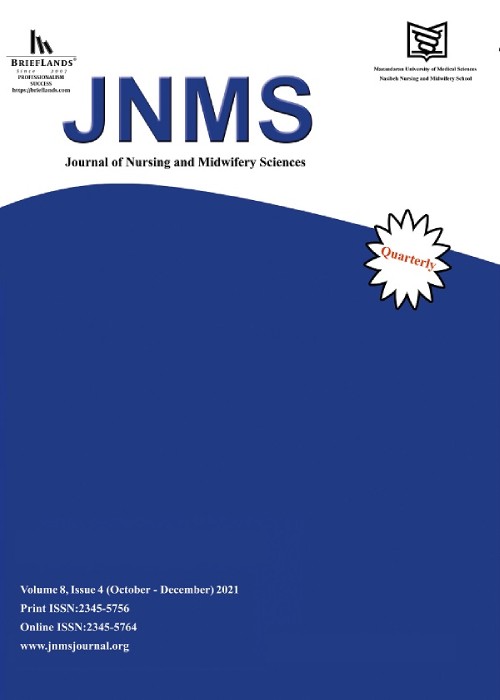Effect of education on the knowledge and attitude of intensive care unit staff towards the use of predictive disease severity scoring systems
Author(s):
Abstract:
Background and
Purpose
Severity of illness scoring systems is used for the classification of patients to receive medical services, predict the risk of mortality, determine hospital bed occupancy, and assess treatment progress. In Iran, these scoring systems are not frequently used due to the lack of knowledge of medical staff. This study aimed to evaluate the effect of education on the knowledge and attitude of intensive care unit (ICU) staff towards the use of predictive illness severity scoring systems in Imam Khomeini Hospital of Sari, Iran.Methods
This pre-experimental study was conducted using a researcher-made questionnaire to assess the knowledge and attitude of ICU staff towards the use of illness severity scoring systems. Study population consisted of all the ICU nurses and physicians engaged in Imam Khomeini Hospital of Sari, Iran. In total, 60 participants were selected via census sampling. All the participants received training on the application of disease severity scoring systems. Knowledge level and attitude of the participants were assessed 10 days after the intervention. Data analysis was performed in SPSS V.18 using descriptive and inferential statistics, Mann-Whitney U test, and repeated measures one-way analysis of variance (ANOVA).Results
In this study, 43 participants (72%) were female, and the mean age of thesubjects was 32.5±7.3 years. Mean score of knowledge increased from 3±5.25 before the intervention to 18.4±0.96 after the intervention. With regard to attitude, mean scores reached from 100.42±11.34 before the intervention to 122.30±9.81 after the intervention (P=0.001).Conclusion
After receiving education on the function of disease severity scoring systems, level of knowledge in the ICU nurses improved from low to high, while their attitude improved from moderate to excellent. Therefore, it is recommended that predictive patient scoring systems be included in medical and nursing curricula. Furthermore, new strategies must be considered to apply these tools in all the critical care units of the country.Keywords:
Language:
English
Published:
Journal of Nursing and Midwifery Sciences, Volume:3 Issue: 1, Jan-Mar 2016
Pages:
52 to 58
magiran.com/p1523714
دانلود و مطالعه متن این مقاله با یکی از روشهای زیر امکان پذیر است:
اشتراک شخصی
با عضویت و پرداخت آنلاین حق اشتراک یکساله به مبلغ 1,390,000ريال میتوانید 70 عنوان مطلب دانلود کنید!
اشتراک سازمانی
به کتابخانه دانشگاه یا محل کار خود پیشنهاد کنید تا اشتراک سازمانی این پایگاه را برای دسترسی نامحدود همه کاربران به متن مطالب تهیه نمایند!
توجه!
- حق عضویت دریافتی صرف حمایت از نشریات عضو و نگهداری، تکمیل و توسعه مگیران میشود.
- پرداخت حق اشتراک و دانلود مقالات اجازه بازنشر آن در سایر رسانههای چاپی و دیجیتال را به کاربر نمیدهد.
In order to view content subscription is required
Personal subscription
Subscribe magiran.com for 70 € euros via PayPal and download 70 articles during a year.
Organization subscription
Please contact us to subscribe your university or library for unlimited access!


